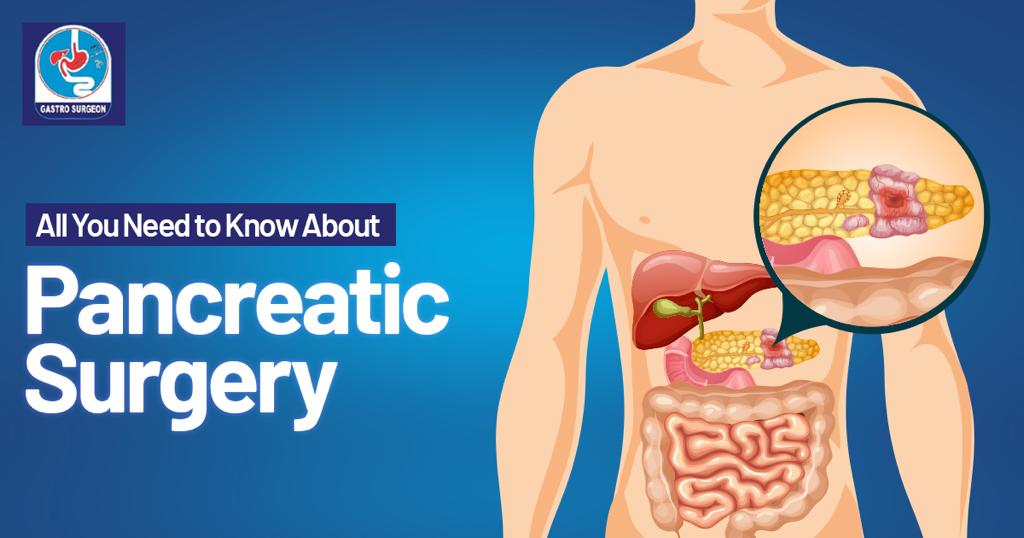Pancreatic surgery, also known as pancreas surgery, is a complex procedure performed to treat various conditions affecting the pancreas. The pancreas is a vital organ located in the abdomen, responsible for producing digestive enzymes and insulin. While pancreatic surgery may sound daunting, it is often necessary to alleviate symptoms, remove tumours, or treat pancreatic diseases.
In this blog, let us explore some essential things you need to know about pancreatic surgery in Visakhapatnam, including its types, indications, recovery, and potential risks.
Types of Pancreatic Surgery:
There are different types of pancreatic surgeries performed based on the condition being treated. The two most common types are:
- a) Whipple Procedure (Pancreaticoduodenectomy): This procedure involves the removal of the head of the pancreas, part of the small intestine, gallbladder, and sometimes a portion of the stomach. It is commonly used to treat pancreatic cancer and certain benign pancreatic conditions.
- b) Distal Pancreatectomy: In this process, the tail and body of the pancreas are removed. It is typically performed to treat tumors or conditions affecting the left side of the pancreas.
Indications for Pancreatic Surgery:
Pancreatic surgery is indicated for various conditions, including:
- a) Pancreatic Cancer: Surgery may be performed to remove tumours in the pancreas if they are localized and haven’t spread to other organs.
- b) Pancreatic Cysts: Large or symptomatic cysts may require surgical intervention to prevent complications.
- c) Chronic Pancreatitis: Severe cases of chronic pancreatitis, causing persistent pain or complications, may necessitate surgery.
- d) Neuroendocrine Tumours: Surgery can be performed to remove tumours that produce excessive hormones.
Recovery and Rehabilitation:
Recovery from pancreatic surgery can be challenging and typically involves:
- a) Hospital Stay: After surgery, patients are usually hospitalized for about one to two weeks, depending on the complexity of the procedure.
- b) Pain Management: Medications are prescribed to manage post-operative pain, and the healthcare team monitors for any signs of complications.
- c) Dietary Changes: A temporary change in diet may be necessary, including a gradual transition from a liquid to a solid diet.
- d) Physical Activity: Physical activity may be limited initially, but gradually, patients are encouraged to resume regular activities and exercise.
Potential Risks and Complications:
Pancreatic surgery, like any surgical procedure, carries certain risks, including:
- a) Infection: There is a risk of developing infections at the surgical site or in the abdominal cavity.
- b) Bleeding: Surgery may cause bleeding, which may require additional intervention or blood transfusions.
- c) Leakage: Leakage of digestive juices or pancreatic fluids can occur, leading to complications such as infections or abscesses.
- d) Diabetes: Depending on the extent of the surgery, the risk of developing diabetes or worsening existing diabetes may increase.
Recovery time of pancreatic surgery in Visakhapatnam:
The recovery time after a pancreatectomy can range from four to eight weeks, depending on the patient’s health prior to the surgery, the complexity of the procedure, and whether it was minimally invasive or open surgery.
Conclusion:
Pancreatic surgery is a complex procedure performed to treat various pancreatic conditions, including pancreatic cancer, cysts, and chronic pancreatitis. While it carries certain risks, it can be a life-saving option for patients.
If you are facing the possibility of pancreatic surgery, it is important to have a thorough discussion with the expert pancreatic surgeon Dr. Ramesh Baipalli to understand the benefits, risks, and expected outcomes.
With advancements in surgical techniques and post-operative care, pancreatic surgery in Visakhapatnam by Dr. Ramesh Baipalli continues to offer hope to patients in need of treatment for pancreatic diseases.
Schedule your appointment today!


